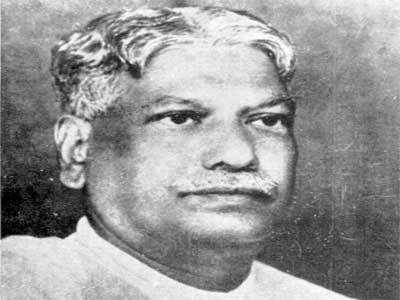Achanta Laxmipathi, popularly acclaimed as the pioneer of Ayurvedic practices in public health is known for his impeccable contributions in the localization of Ayurveda, countrywide.
Achanta Laxmipathi was born on 3rd March 1880 to Janakamma and Ramayya, in Madavavaram village in the West Godavari district of Andhra Pradesh.
He obtained an MBBS degree in the year 1909 in Allopathy medicine. However, for his fascination with ancient Indian medicine, he studied Ayurveda under the guidance of Pundit Gopalacharyulu Deevi from the Ayurveda medical college, Madras.
Lakshmipati played an imperative role in the propagation and localization of Ayurveda, all over the country. His extensive knowledge of Ayurveda intrigued and influenced students beyond national boundaries. Students from Germany and America used to come to study Ayurveda from him.
Achanta Laxmipathi was one of those, who endeavoured to re-introduce the principles of Ayurveda back in our society.
He was the pioneer of India’s ancient Ayurvedic treasure in public health. And, the Former President of India, VV Giri reiterated the fact by proclaiming that “Dr Lakshmipathi's autobiography is a factual narration of the resurgence of Ayurveda in India.”
He became an adviser to the Government of India's Planning Commission, in 1960 and strongly advocated concentrating on preventive medicine to improve national health.
Achanta Laxmipathi established a charitable trust, ‘Aarogya Ashram Samithi’ in 1926 with the aim of advancement of preventive medicine, by making the public aware of the principles of positive health of mind and body.
Laxmipathi was inspired by the thoughts and principles of Gandhiji and thus, initiated a national health pilgrimage, ‘Aarogya Yatra’ in 1938 to raise awareness on public health.
He travelled on foot, with about 100 physicians to far-flung villages to teach simple principles of Ayurveda, guidance on diet, lifestyle, behaviour, exercise, and promoting the cultivation of herbal gardens.
Achanta Lakshmipati served as the principal of the Ayurveda Medical College, from 1920.
He also served as the president of the All India Ayurveda Medical Society & Andhra Ayurveda Board and also as the secretary of the Andhra Sahitya Parishattu in Madras.
He authored several medical journals like "Dhanvantari" in Telugu, "Andhra Medical Journal" in English, etc. He wrote 63 books on Indian medicine, including darshanamulu, Ayurveda vignana sarvasvamu, Ayurveda siksha, vanoushadha vignanamu, Bharatiya vignanamu etc.
To honour his contributions in the field of Medicine, Ayurveda, and health in general, several Medical Institutions were named after him in Chennai, like Achanta Lakshmipathy Unit for Research in Ayurvedic Medicine at Voluntary Health Services, Chennai, Achanta Lakshmipathy Neurosurgical Centre, VHS, Chennai, etc.

















Related Items
Mobile clinics boost health outcomes, cut costs in developing countries
People eat less meat to benefit their own health, not for environment
Himalayan clouds carrying toxic metals pose health risks